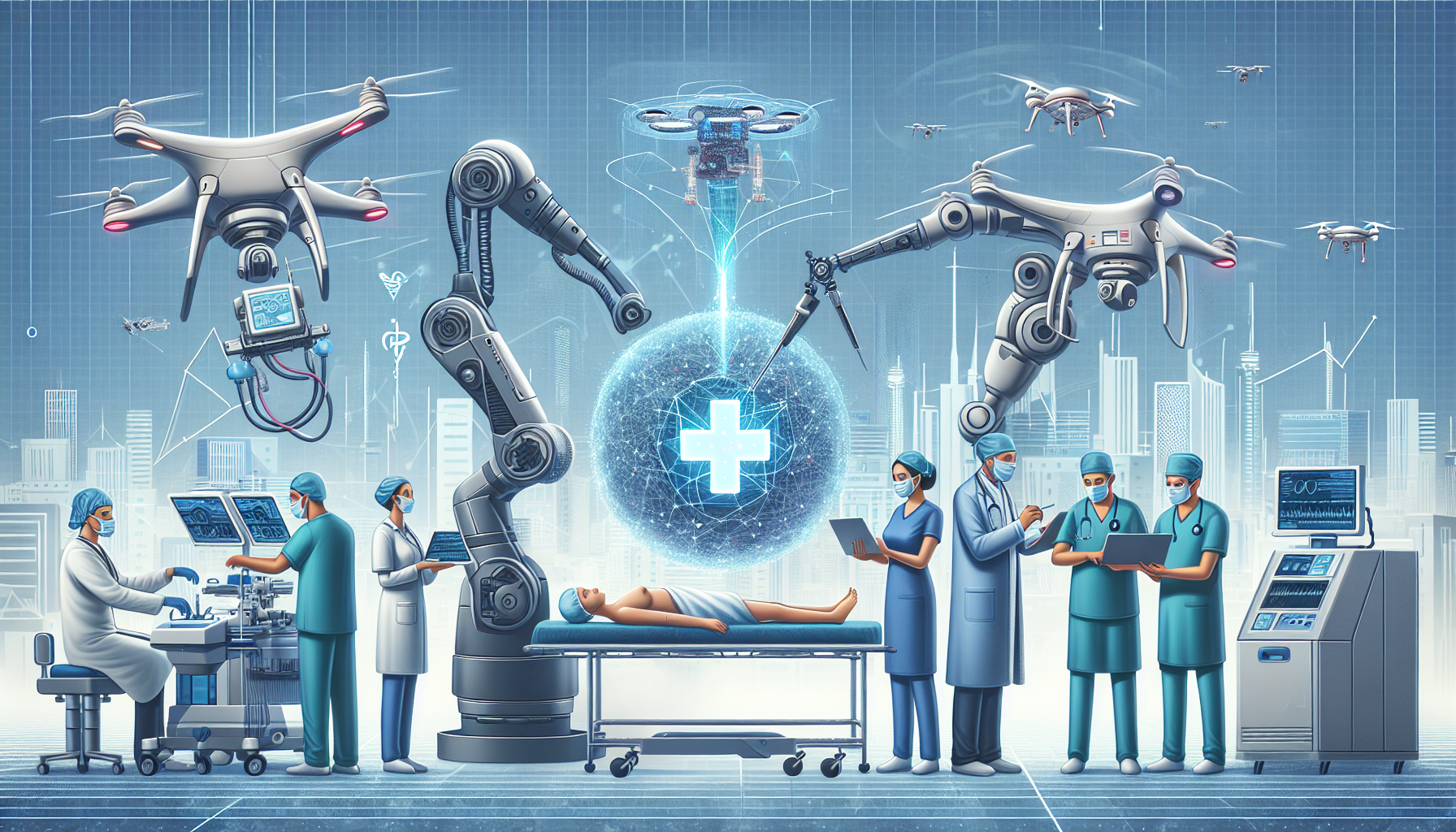Automation in Healthcare: Improving Patient Outcomes and Business Efficiency
The Rise of Automation in Healthcare
Automation in healthcare has emerged as a revolutionary force, significantly transforming the landscape of patient care and operational productivity. Advanced technologies, such as robotic process automation (RPA), artificial intelligence (AI), and machine learning, are being harnessed to streamline healthcare processes, reduce costs, and enhance patient experiences.
Key Areas of Automation in Healthcare
-
Administrative Tasks Automation
Healthcare facilities grapple with extensive paperwork and tedious administrative tasks. Automation software can handle scheduling, billing, and patient communications, allowing staff to focus on more critical functions. Automated booking systems reduce appointment no-shows by sending reminders, thereby maximizing patient throughput and reducing wasted resources.
-
Clinical Workflow Optimization
Automation tools improve clinical workflows by managing electronic health records (EHRs) and facilitating easy access to patient information. Automated documentation processes save clinicians valuable time, allowing them to dedicate more effort to patient care. Furthermore, AI-driven clinical decision support systems assist healthcare providers with data analysis, leading to quicker and more accurate diagnoses.
-
Telemedicine Solutions
The COVID-19 pandemic accelerated the adoption of telemedicine, where automation plays a vital role in consulting patients remotely. Automated platforms enable seamless video conferencing, patient monitoring, and follow-up interactions. These solutions not only improve access to care but also ensure continuity, especially for patients in remote or underserved areas.
-
Medication Management
Automated medication management systems enhance patient safety through accurate dispensing and monitoring of medications. Smart dispensers track dosages and schedules, minimizing human errors. Additionally, AI algorithms analyze a patient’s medications, flagging potential interactions and ensuring adherence to prescribed treatment plans.
-
Robotic Assistance in Surgeries
Robotic systems assist surgeons with precision and control during complex procedures. These robots can automate specific tasks, such as suturing and suturing placement, significantly decreasing recovery times and enhancing surgical outcomes. The role of robotics extends beyond surgeries, with robots also aiding in rehabilitation and elder care.
-
Patient Data Analytics
The vast amounts of data generated in healthcare are challenging to analyze manually. Automation tools employ machine learning algorithms to process patient data, identifying trends and anomalies that enhance personalized medicine. Predictive analytics can foresee complications in chronic disease patients, allowing for timely interventions.
Benefits of Automation in Healthcare
-
Enhanced Patient Outcomes
One primary goal of automating healthcare processes is to improve patient outcomes. With accurate data analysis and reduced human error, providers can deliver more precise treatments. Automation facilitates timely interventions and improves patient follow-up, significantly impacting treatment efficacy and patient satisfaction.
-
Increased Operational Efficiency
By automating routine tasks, healthcare organizations can significantly enhance their operations. This increase in efficiency leads to reduced overhead costs, shorter patient wait times, and optimized staff utilization. When resources are used wisely, facilities can serve more patients while maintaining high quality.
-
Improved Cost Management
Automation aids in cost containment by minimizing redundancies and waste. Efficient billing systems reduce payment delays, and inventory management automation ensures that supplies are well-stocked without over-ordering, preventing financial losses.
-
Better Compliance and Safety
Compliance with healthcare regulations is vital for patient safety and organizational integrity. Automated systems streamline reporting processes, reduce the risk of errors, and ensure adherence to legislative requirements, such as HIPAA. Consequently, organizations can avoid hefty fines and protect patient information more effectively.
-
Enhanced Data Security
With increasing cybersecurity threats, automated security measures are crucial for safeguarding sensitive patient information. Solutions like automated encryption and regular security audits ensure that healthcare organizations maintain the highest standards of data protection, engendering patient trust.
Challenges of Automation in Healthcare
-
Initial Implementation Costs
The initial investment in automation technologies can be significant. Smaller healthcare practices may struggle with the financial burden of purchasing and integrating new systems. However, the long-term benefits often outweigh these initial expenditures.
-
Integration with Legacy Systems
Many healthcare facilities still operate using legacy systems that may not be compatible with new automation technologies. This lack of interoperability poses challenges to seamless data migration and can hinder the efficiency gains anticipated with automation.
-
Digital Literacy and Adoption
Successful automation relies on staff training and willingness to embrace new technologies. Resistance to change can slow down implementation and undermine the intended benefits of automation. Continuous education and support are essential for overcoming these barriers.
-
Data Privacy Concerns
As healthcare facilities increasingly rely on automation, the risks associated with data breaches escalate. It is vital for organizations to implement robust cybersecurity measures and continuously update them to protect against evolving threats.
Future Trends in Healthcare Automation
-
Artificial Intelligence Advancements
AI is expected to play an even more prominent role in healthcare automation, enhancing diagnostics, treatment planning, and personalized medicine. As algorithms become increasingly sophisticated, they will deliver insights that improve patient management strategies.
-
Wearable Technology
The rise of wearable health tech is automating patient monitoring, allowing for continuous tracking of vital signs and health metrics. This real-time data collection enables proactive healthcare interventions and fosters patient engagement.
-
Blockchain in Healthcare
Blockchain technology is anticipated to bring a new level of transparency and security to healthcare data management. Automated blockchain systems could streamline patient records while ensuring data privacy and integrity.
-
Robotic Assistance Expansion
Beyond surgeries, robotics are expected to expand into various areas of patient care, including rehabilitation and elderly support. Intelligent robots can provide companionship and assistance, greatly improving the quality of life for patients with limited mobility or cognitive impairments.
Conclusion
The journey towards widespread automation in healthcare is ongoing, marked by significant advancements and the promise of enhanced patient outcomes and business efficiency. As healthcare organizations continue to embrace these technologies, the potential for improved care delivery, patient engagement, and operational effectiveness remains vast. Regular assessments, workforce training, and investment in innovative solutions will be pivotal in navigating the challenges and maximizing the benefits of automation in the healthcare sector.


